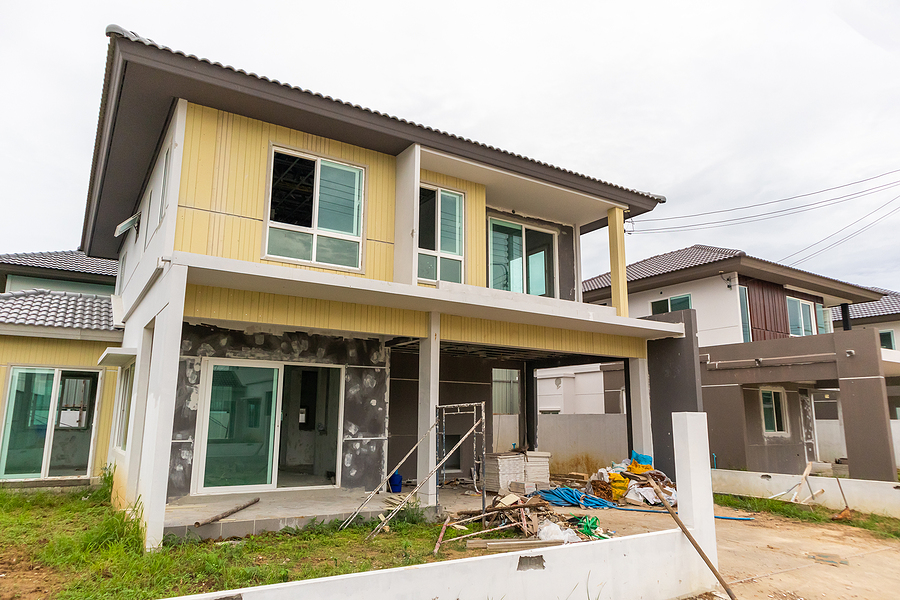What to Know About Home Additions
Expanding your living space with a home addition can be an exciting way to enhance your property’s functionality and value. Whether you need more room for a growing family, want to add a new feature like a sunroom, or simply wish to increase the square footage of your home, understanding the basics of home additions is crucial before diving into the project. Here’s what you need to know to ensure your home addition is a success.

Determine Your Needs and Goals
Before starting any home addition project, it’s essential to clearly define your needs and goals. Consider why you want to add to your home and what specific requirements you have. Are you looking to create more living space, add a new bedroom, or perhaps expand your kitchen? Understanding the purpose of the addition will help guide your decisions throughout the project.
For instance, if you’re planning to accommodate a growing family, you might prioritize adding bedrooms or expanding common areas like the living room. On the other hand, if you’re looking to increase your home’s resale value, you might focus on additions that are popular among buyers, such as an extra bathroom or a modern kitchen extension.
Understand Zoning Laws and Permits
Zoning laws and building codes play a significant role in any home addition project. Before you start, it’s crucial to understand the regulations in your area. Zoning laws dictate what can be built on your property, including the size and location of additions. Some areas have restrictions on how close an addition can be to property lines, how tall it can be, and how much of your lot can be covered by buildings.
Obtaining the necessary permits is another critical step in the process. Failing to secure the right permits can result in fines, delays, or even having to remove the addition. Working with a knowledgeable contractor who understands local regulations can help ensure that your home addition project complies with all relevant laws.
Set a Realistic Budget
Home additions can be costly, so setting a realistic budget is essential. The cost of your project will depend on various factors, including the size of the addition, the materials used, and the complexity of the design. It’s important to account for both the construction costs and additional expenses, such as design fees, permits, and any necessary landscaping.
When creating your budget, it’s also wise to include a contingency fund for unexpected expenses. Remodeling projects often come with surprises, whether it’s uncovering structural issues or needing to upgrade outdated systems like plumbing or electrical. Having a financial cushion can help you handle these challenges without derailing your project.
Choose the Right Contractor
Selecting the right contractor is crucial to the success of your home addition. Look for a contractor with experience in home additions and a track record of satisfied clients. It’s a good idea to check references and ask to see examples of their previous work. A reliable contractor will also be transparent about costs, timelines, and any potential challenges they foresee with your project.
Working with a reputable contractor not only ensures quality workmanship but also helps to streamline the process, as they can manage everything from obtaining permits to coordinating with subcontractors.
Consider the Impact on Your Home’s Structure
When planning a home addition, it’s important to consider how the new space will integrate with the existing structure. This includes ensuring that the addition is structurally sound and that it complements the overall design of your home. For example, the roofline of the addition should match or blend with the existing roof to create a cohesive look.
You’ll also need to consider the impact on your home’s systems, such as heating, cooling, and plumbing. An addition may require upgrading your HVAC system to handle the increased load or extending plumbing lines to accommodate a new bathroom or kitchen area.
Plan for the Long Term
Home additions are a significant investment, so it’s important to think about the long-term impact on your home. Consider how your needs may change in the future and whether the addition will continue to meet those needs. For example, a new bedroom or bathroom may be essential now, but will it still be useful if your family situation changes?
Additionally, think about the resale value of your home. While adding space can increase your home’s value, it’s important to ensure that the addition is in line with the overall market value of homes in your area. Over-improving your home could make it difficult to recoup your investment when it comes time to sell.
Get Professional Help with Home Additions
A home addition can be a great way to enhance your living space and increase your property’s value. By understanding your needs, setting a realistic budget, choosing the right contractor, and planning for the long term, you can ensure that your project is a success. Whether you’re looking to create more space or add new features, a well-executed home addition can make your home more enjoyable for years to come.
For expert advice and professional assistance with your home addition project, contact Property Pros at 765-400-PROS. We’re here to help you every step of the way!

